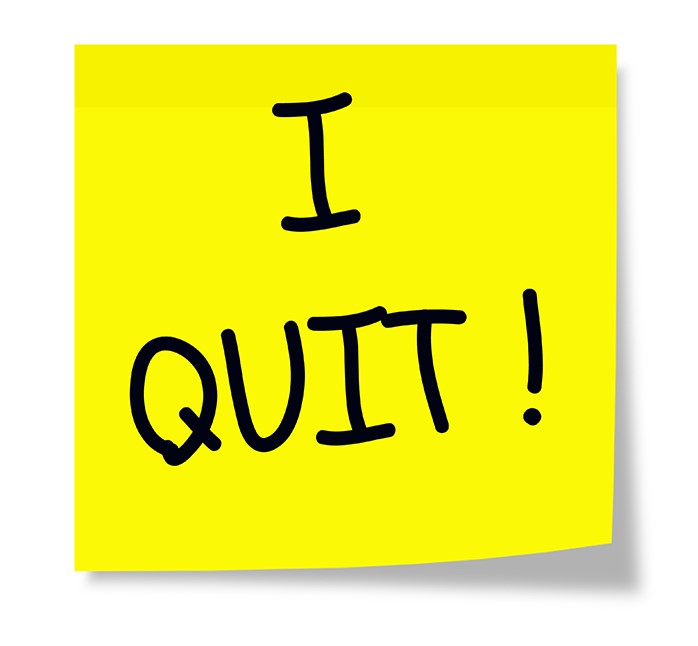
Michigan Circuit Court Reminds Employers About Voluntary Quitting and UI Benefit Qualification
November 28, 2022
By Michael Burns, courtesy SBAM Approved Partner ASE
Many human resources professionals have experienced the worker that for one reason or another gets fed up and just walks off the job. It’s unfortunate and disrupting but also sets the machinations of employment policy and law in motion. A recent Michigan Court of Appeals case affirms that employees that walk off the job not only voluntarily quit, but also disqualify themselves from unemployment compensation benefits.
Travis Anderson worked as a forklift operator for a company called Wright Coating Company, Inc. (WCC). In April of 2020 Anderson refused to wear a company provided facemask in accordance with WCC’s COVID policy – also a safety infraction that could have disqualified him if he had been fired at that point. The company chose to suspend Anderson under its safety policy and charge him demerit points for misconduct. When Anderson was informed of this, he became upset and left work mid-shift.
Anderson claims he spoke to several people, including a Manager at WCC, about leaving early. His manager stated under oath that he did not speak to him, and nobody at WCC gave him permission to leave work. Anderson also testified that he checked with HR about his concern that if he did leave, he would not be at risk of termination due to accumulating too many points under the company disciplinary policy.
The next day Anderson returned to work, the Manager told him that WCC considered his leaving work as a quit and job abandonment.
It is important to note that WCC did not fire/terminate Anderson for leaving his job. WCC’s stated reason for no longer employing him and allowing him to return to work is because he had quit his job.
Anderson filed for unemployment benefits and was turned down due to ineligibility. This was because the employer reported he had voluntarily left his job. Anderson appealed and continued to lose his cases through the Unemployment Agency appeals system and lower court where he again lost based upon the fact that Michigan law clearly states:
“…an individual is disqualified from receiving unemployment benefits if the person: Left work voluntarily without good cause attributable to the employer or employing unit. [italics and bold added] An individual who left work is presumed to have left work voluntarily without good cause attributable to the employer or employing unit. An individual who is absent from work for a period of 3 consecutive work days or more without contacting the employer in a manner acceptable to the employer and of which the individual was informed at the time of hire is considered to have voluntarily left work without good cause attributable to the employer. . .. An individual claiming benefits under this act has the burden of proof to establish that he or she left work involuntarily or for good cause that was attributable to the employer or employing unit.”
Though this Appeals Court decision is based upon the law above, WCC also has a clearly stated employment policy, including a three day no call/no show policy and a disciplinary system that it followed that supported WCC’s actions. Keep that in mind when responding to an employee that is pushing the boundaries of attendance or when applying the Company’s disciplinary policy for attendance purposes.
The Circuit Court of Appeals looked closely at the law [MCL 421.29 (1) (a) that states that “an individual who left work is presumed to have left work voluntarily without good cause attributable to the employer or employing unit.” Leaving under their own’s volition is not in fact discharged. The outcome might have been different had Anderson been told the day of his disciplinary meeting that if he left, he would no longer be employed. The Court cited a 1998 Michigan Supreme Court decision that stated:
“[W]e continue to hold that whether a person is entitled to unemployment benefits is a two-part inquiry. Under the first prong, we must determine whether plaintiff voluntarily left her position. If we find that she left her position involuntarily, the inquiry ends, and she is entitled to unemployment compensation. Whether a person left voluntarily will depend on the particular facts and circumstances of the case. However, if the court finds that plaintiff left her position voluntarily, we must advance to prong two to determine whether her leaving was “without good cause attributable to the employer.”
The Circuit Court in this case did not find cause attributable to the employer.
As an example of how close actions of the employer can impact which way the unemployment law may sway, the Court distinguished this case from another where an employee left work early on Christmas Eve without formal permission. He spoke to his manager and was told that he would just lose holiday pay for doing so. When he reported for work the next day, he was told he was discharged.
The difference between the Christmas Eve circumstance in this case was not just that the employee left without permission, but the employer stated upon the employee showing up after Christmas that he was discharged. WCC informed Anderson that he could not return because he quit his job when he left the day before. This is a subtle but critical difference about how the employer communicated the consequences.
This case exemplifies how employers should exercise employment policy and practice (not to mention restraint) when faced with an employee acting out and leaving their job to make a point. Had the employer (or one of its managers) chosen to inform the employee he would be fired for leaving work early the employee could argue that he did not voluntarily quit, and the unemployment claim would have gone through.
Employers should stay on top of their policies and disciplinary practices so that they do not lose their advantage when confronted with an errant worker that tries to make some point by walking off the job.